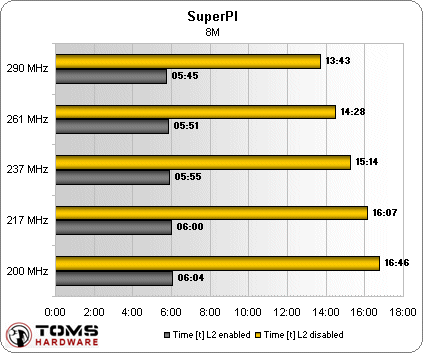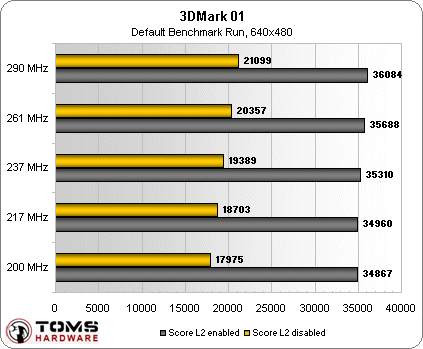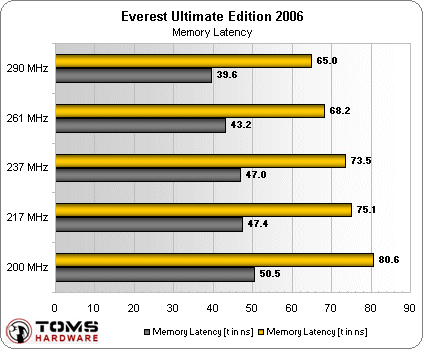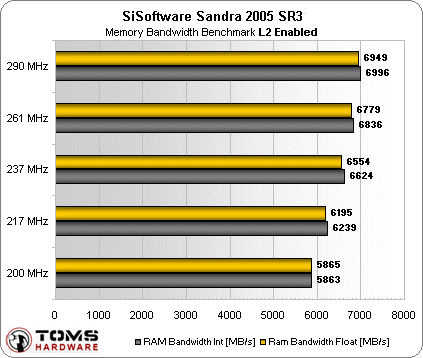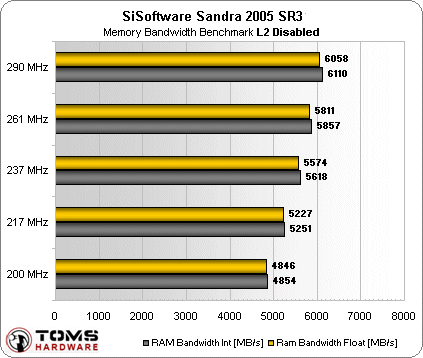Tight Timings vs High Clock Frequencies
Memory MHz Benchmark Impact
Now that we know how much of an impact the CPU clock frequency has in our benchmarks, the next logical step is to find out how the memory clock frequency affects the results. We used CL2.5-4-3-7 timings and changed only the memory speed divider settings throughout the benchmark runs. For this test, disabling the L2 cache actually did produce some interesting results, so we decided to include those graphs.
As you can see, increasing memory clock speed actually helps squeeze the maximum performance out of the system. However, in SuperPI and 3Dmark - which reflect real world performance - we see tiny 5.2% and 3.5% performance increases, respectively, from a big 45% increase in memory clock frequency. Bear in mind that this is 3DMark2001, which, in contrast to newer versions of 3DMark, actually is somewhat bottlenecked by CPU speed or even memory speed when used with a new, yet reasonably-priced, graphics card. This will not necessarily be the case with modern games or benchmarks.
Also, remember that we used the same timings for all memory speeds. This means that if you end up in a situation where you are choosing between DDR400 and DDR600, the effective difference will actually be quite small, since DDR400 can run tighter timings. Exactly how much of a difference this makes we'll examine shortly.
Now let's take a look at how performance scales when changing the system memory timings.
Get Tom's Hardware's best news and in-depth reviews, straight to your inbox.
Current page: Memory MHz Benchmark Impact
Prev Page CPU MHz Benchmark Impact Next Page Memory Timings Benchmark Impact-
jona1 Excellent article. I was looking for a good explanation of memory timings. Thank you (I am from Uruguay, sorry for my bad English :) )Reply -
Good Article I guess. I've been wondering that exact question now that i got 2x1GB of Patriots PC2-8500 Viper Series from NVISION08. The timings are 5-5-5-15 2T at 1066MHz. When i try to lower it 1T it's not reliable. Anyways, thanks tomshardware for another good article, I hope there is a sequel to this, specifically DDR2 or 3 memory.Reply
-
spellbinder2050 ReplyAs most of you are probably aware, the MHz clock speed of the Athlon 64 and Opteron is the product of the HyperTransport speed (HTT) times the multiplier of the CPU.
Correct me if I'm wrong, but shouldn't this be written as, "the MHz clock speed of the Athlon 64 and Opteron is the product of the HyperTransport speed (HTT) and the multiplier of the CPU."
